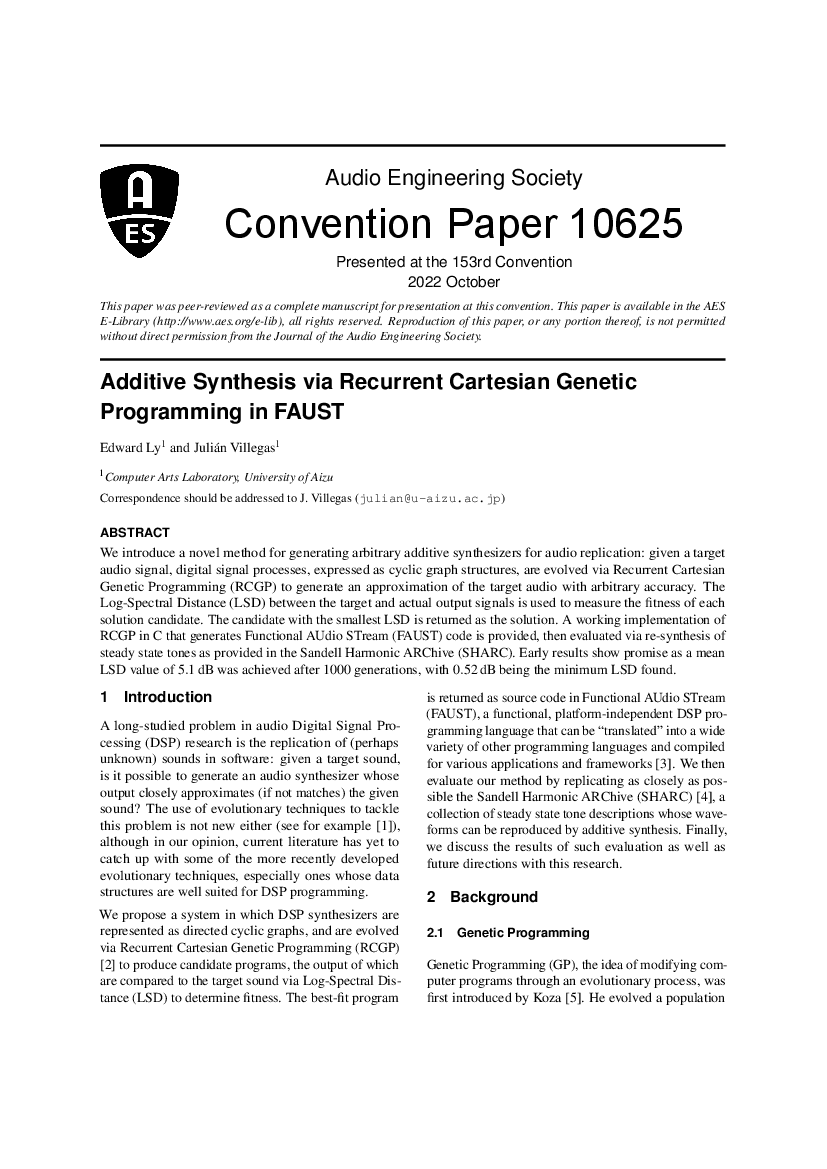Home / Publications / E-library page
You are currently logged in as an
Institutional Subscriber.
If you would like to logout,
please click on the button below.
Home / Publications / E-library page
Only AES members and Institutional Journal Subscribers can download
We introduce a novel method for generating arbitrary additive synthesizers for audio replication: given a target audio signal, digital signal processes, expressed as cyclic graph structures, are evolved via Recurrent Cartesian Genetic Programming (RCGP) to generate an approximation of the target audio with arbitrary accuracy. The Log-Spectral Distance (LSD) between the target and actual output signals is used to measure the fitness of each solution candidate. The candidate with the smallest LSD is returned as the solution. A working implementation of RCGP in C that generates Functional AUdio STream (FAUST) code is provided, then evaluated via re-synthesis of steady state tones as provided in the Sandell Harmonic ARChive (SHARC). Early results show promise as a mean LSD value of 5.1 dB was achieved after 1000 generations, with 0.52 dB being the minimum LSD found.
Author (s): Ly, Edward; Villegas, Julián
Affiliation:
Computer Arts Laboratory, University of Aizu; Computer Arts Laboratory, University of Aizu
(See document for exact affiliation information.)
AES Convention: 153
Paper Number:10625
Publication Date:
2022-10-06
Import into BibTeX
Session subject:
Signal Processing
Permalink: https://aes2.org/publications/elibrary-page/?id=21954
(223KB)
Click to purchase paper as a non-member or login as an AES member. If your company or school subscribes to the E-Library then switch to the institutional version. If you are not an AES member Join the AES. If you need to check your member status, login to the Member Portal.

Ly, Edward; Villegas, Julián; 2022; Additive Synthesis via Recurrent Cartesian Genetic Programming in FAUST [PDF]; Computer Arts Laboratory, University of Aizu; Computer Arts Laboratory, University of Aizu; Paper 10625; Available from: https://aes2.org/publications/elibrary-page/?id=21954
Ly, Edward; Villegas, Julián; Additive Synthesis via Recurrent Cartesian Genetic Programming in FAUST [PDF]; Computer Arts Laboratory, University of Aizu; Computer Arts Laboratory, University of Aizu; Paper 10625; 2022 Available: https://aes2.org/publications/elibrary-page/?id=21954